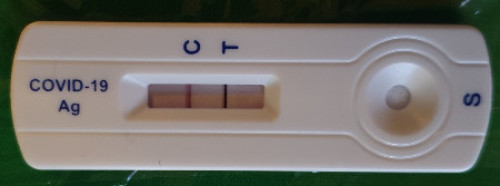
On August 23, the Southern District Court of New York unsealed an indictment accusing two Romans of money laundering.
“Romans” doesn’t refer here to people from Rome. It refers to two guys named “Roman” — Roman Storm of the United States and Roman Semenov of Russia.
And “money laundering” doesn’t refer here to actual money laundering in either the real or metaphorical sense. It refers to developing software that protects people’s privacy, namely a “cryptocurrency tumbler” which allows people to move money around without permission from or — hopefully — the knowledge of government spies.
The software in question is called Tornado Cash.
Unlike some “tumblers,” Tornado Cash is open source (anyone can see the code it runs on) and decentralized (it has no single “owners” or decision-makers and is governed by “smart contracts” and the votes of anyone who holds its “tokens”).
Storm and Semenov face the “money laundering” charges because, the government alleges, people it doesn’t like have used Tornado Cash to avoid US government sanctions, US government taxes, etc.
Programs like Tornado Cash scare the hell out of politicians. The ability to earn and spend money without their permission is an existential threat to their power over you. That kind of thing must be nipped in the bud at all cost. Therefore, selected victims must be made examples of, and Storm and Semenov drew the short straws this time around.
Tornado Cash takes the form of a “Decentralized Autonomous Organization.”
Governments don’t mind organizations, as long as those organization can be carefully monitored, tightly controlled, and harshly punished should they happen to get on any politician’s wrong side in any way at any time.
The “decentralized” and “autonomous” parts make it harder to monitor, control, and punish an organization.
Whether the Tornado Cash DAO is decentralized and autonomous enough to survive the attempts on its life (so to speak) is questionable. Because it’s a for-profit proposition, with token holders still maintaining some control over, and benefiting from, its operations, there may be further weak points.
But for now, the weak point is “who wrote the code?” The government is going after Storm and Semenov because they’re known to have been involved in doing so.
In the future, we’re going to need Decentralized Autonomous Programs, not organizations — anonymously authored, open source software that, once released into the wild, fulfills its functions without further human supervision.
With governments increasingly looking to get into the “Centralized Bank Digital Currency” game, your future options boil down to two:
Government can control every cent you earn, hold, or spend, in every respect, all the time, 24/7/365.
Or government can lose its control over money entirely.
This is an all-or-nothing scenario, folks. It’s one or the other. Choose wisely.
Thomas L. Knapp (Twitter: @thomaslknapp) is director and senior news analyst at the William Lloyd Garrison Center for Libertarian Advocacy Journalism (thegarrisoncenter.org). He lives and works in north central Florida.
PUBLICATION/CITATION HISTORY


